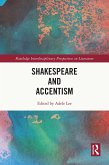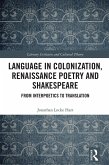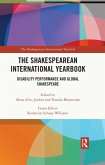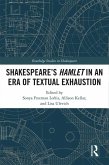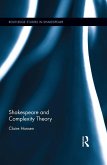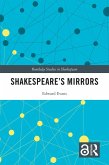Hamlet and the criticism surrounding it is caught within competing horizons we know are circuitous and unending. We tiresomely make theoretical rounds between competing sets of interpretations that boil down to either establishing meaning within the play (the text transcending its history and revealing universal truths) or situating the text within its proper historical timeframe in order to get it to speak. In short, we are trapped between contextualizing and decontextualizing approaches. Yet we know both approaches, as competing horizons we commit to at the outset, are dead. But to abandon both at the outset means that the text, Hamlet, is itself dead. So how to get it to speak?
Dieser Download kann aus rechtlichen Gründen nur mit Rechnungsadresse in A, B, BG, CY, CZ, D, DK, EW, E, FIN, F, GR, HR, H, IRL, I, LT, L, LR, M, NL, PL, P, R, S, SLO, SK ausgeliefert werden.
--Professor Richard Halpern, New York University, USA
"Amir Khan's captivating exploration of Ah Q and Hamlet shifts focus away from Hamlet's delay and refreshingly revitalizes Hamlet's inner life. Khan reveals a vast and relevant landscape of Shakespearean interpretations. Bold and thought-provoking, this book redefines our understanding of Hamlet."
-Dr. Ivy Hao Liu, Tsinghua University, People's Republic of China



